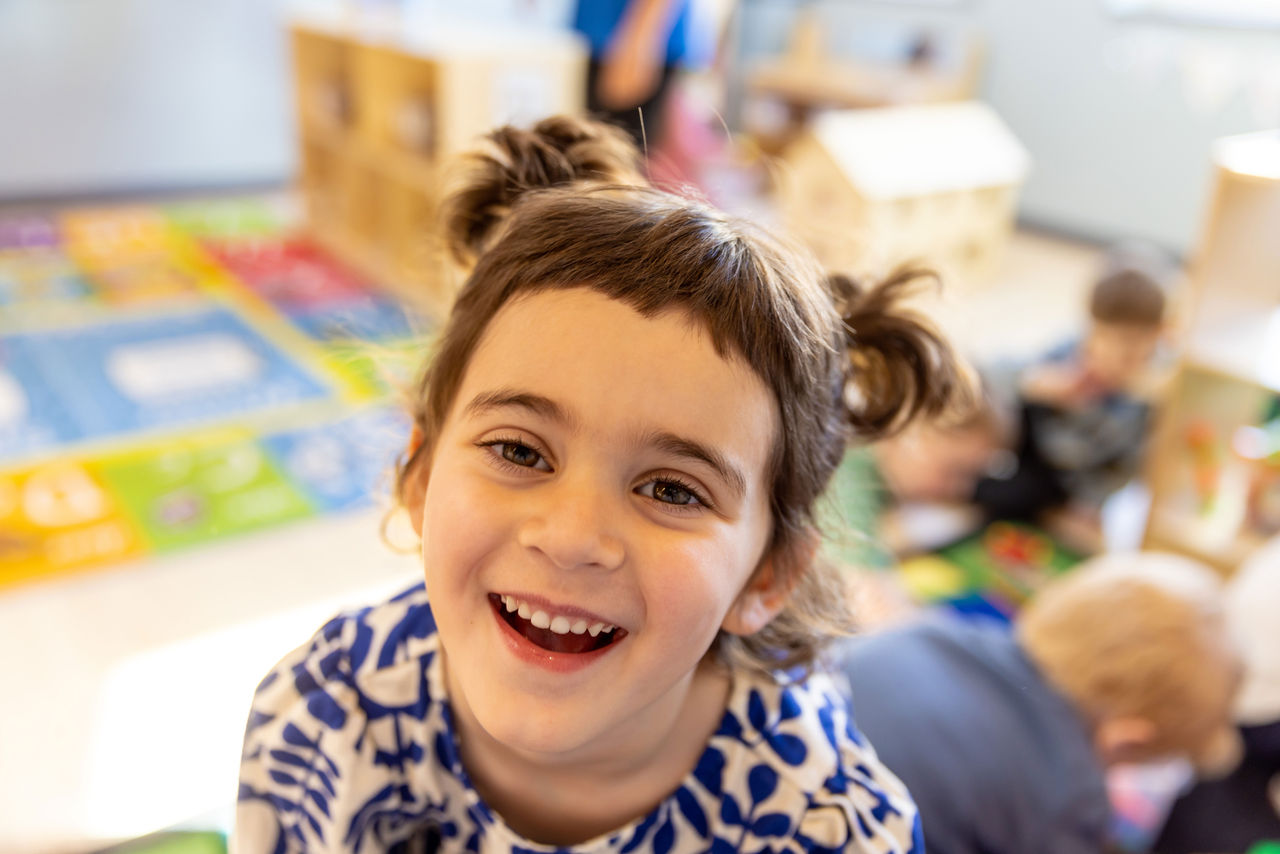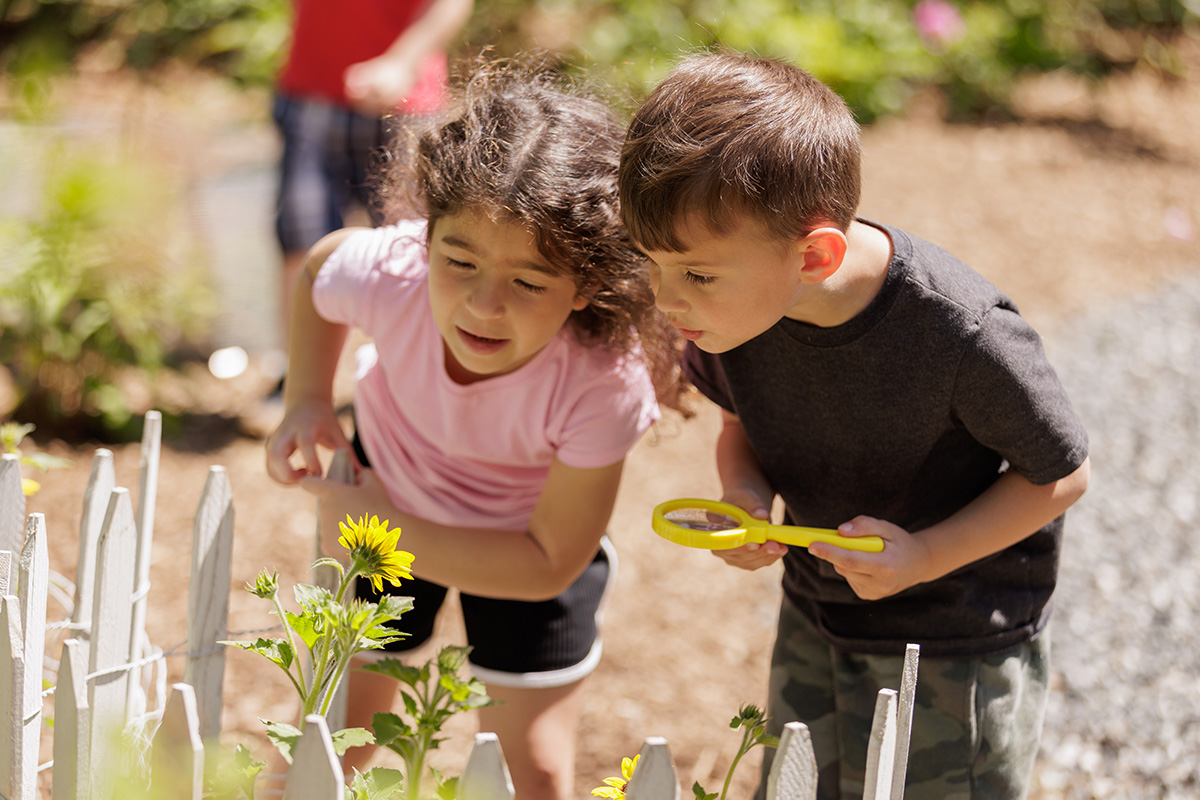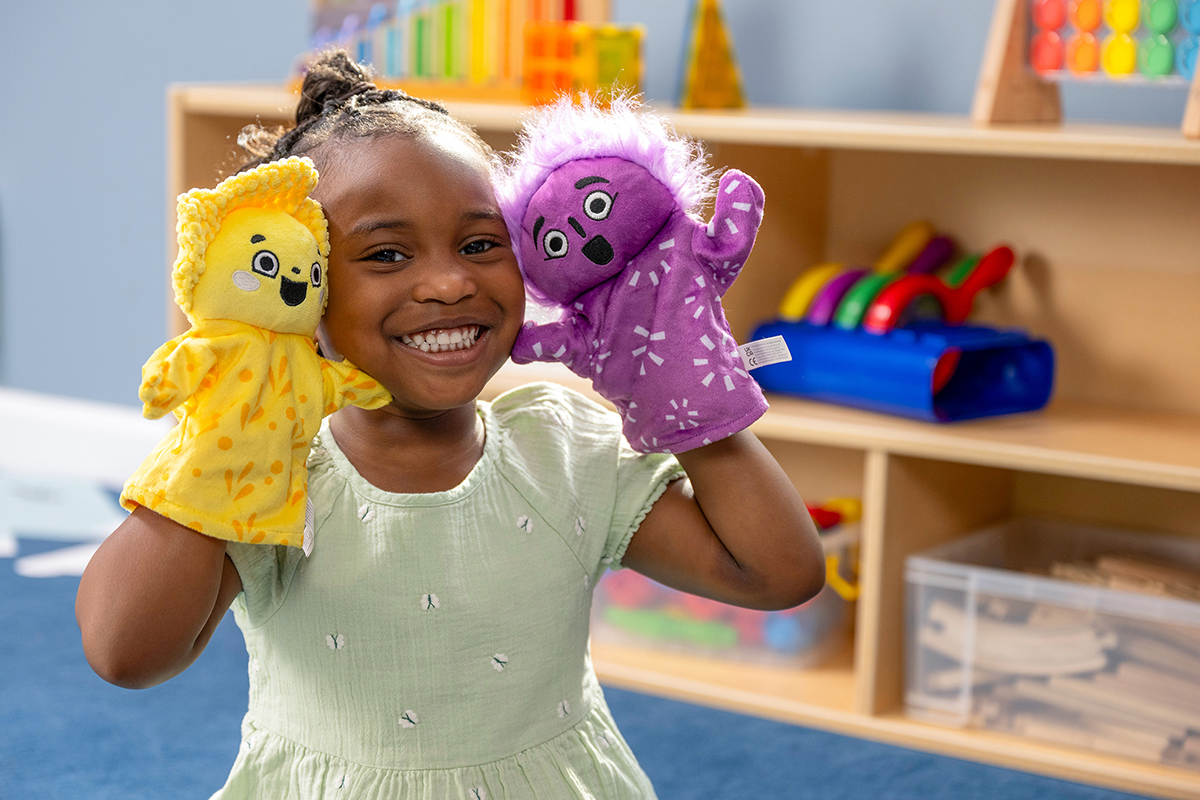Early childhood development is filled with seemingly endless opportunities for children to learn new skills as they grow and build relationships with others. Emotional intelligence is one of these incredibly essential skills for children to develop during their earliest years. When children are able to understand and manage their feelings, they are better equipped to navigate the unpredictable world around them. Emotional intelligence skills empower children to build stronger relationships and is one of the most accurate predictors of success later in life.
Understanding Emotional Intelligence
Emotional intelligence is the ability to identify, understand and manage your own emotions as well as recognizing emotions in others. Once children are aware of their feelings they can learn how to self-regulate their emotions. These social-emotional skills are a vital element of early childhood because it enables children to develop empathy, form healthy relationships, communicate effectively and manage conflict.
Teaching Children to Understand Their Emotions
Teaching children to understand their emotions establishes the foundation necessary for self-regulation. Identifying strong feelings helps children develop self-awareness and empathy.
Encouraging Emotional Awareness
Be sure to encourage emotional awareness by asking open-ended questions, using feeling words and modeling emotional expressions. You can narrate your child’s feelings throughout the day. If you see them laughing, say, “You’re really happy playing with the puppy!” When reading books, point to character’s faces and ask your child what they think the character is feeling. Or make different faces at your child and encourage them to mimic you. Then talk about what feeling the face represents.
Validating Their Feelings
Even when you may not agree with your child’s perspective, validating their feelings is essential. Acknowledging and accepting their emotions without placing a judgment on them allows your child to feel seen and understood. When you listen actively and attentively, you create a safe space where you and your child can reflect on their emotions and identify what may have caused them. Validating your child’s perspective promotes empathy, which children learn by receiving it from others.
Teaching Emotional Regulation
Emotional regulation, or self-regulation, is a person’s ability to manage their emotions in a healthy way. Children learn self-regulation techniques best through modelling and play. If your child is frustrated, start with naming their feeling. Then suggest self-regulation techniques like deep breaths, blowing bubbles, stomping feet or jumping up and down. Then you must show them how. They may even find it silly to watch you stomp your feet, which can help lighten the mood! When playing with your child, see how you can work in role-play scenarios. Maybe teddy bear is feeling mad because cat won’t share. Coax your child through the scenario with questions about what teddy bear can do.
Incorporating Emotional Intelligence into Everyday Life
Make practicing emotional intelligence a priority for the family. Designate time to discuss emotions, practice mindfulness together and place an emphasis on positive relationships. Encourage emotional expression through conversations or more creative outlets like art and music.
Making Emotional Intelligence a Priority
It’s important to prioritize practicing emotional intelligence because the social-emotional skills they learn during early childhood will last a lifetime. Incorporating emotional intelligence into everyday life may look different each day, but it can include designating time to discuss emotions, practicing mindfulness together and placing an emphasis on positive relationships.




